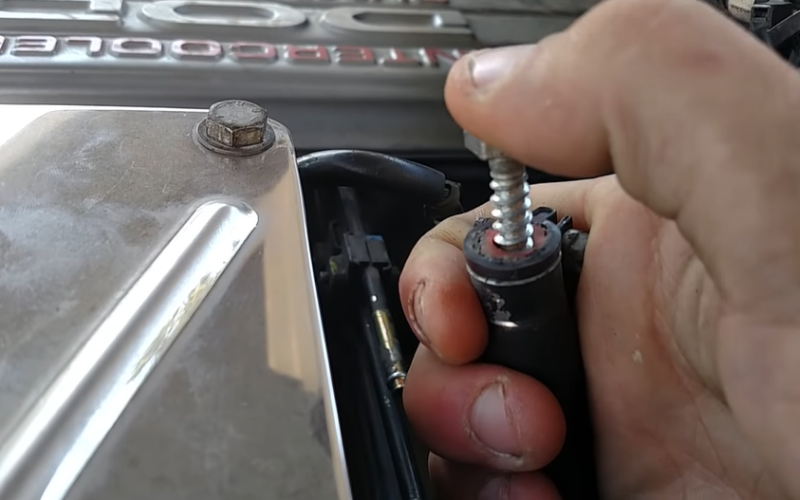We were driving down the highway, enjoying the scenery, when suddenly our car started sputtering. The engine light came on, and we knew something was wrong. We pulled over to the side of the road and called our mechanic. He told us that the P0234 code was showing up, which meant that there was a problem with the turbocharger boost sensor. He told us that we could bring it in the next day and he would take a look at it.

Image: www.carparts.com
In this blog post, we will discuss what the P0234 code means, what causes it, and how to fix it. We will also discuss some tips and expert advice from our mechanic, so that you can avoid this problem in the future. Keep reading to learn all about P0234!
What is the P0234 Code?
The P0234 code is a diagnostic trouble code (DTC) that indicates a problem with the turbocharger boost sensor. The turbocharger boost sensor is responsible for measuring the pressure of the air that is coming from the turbocharger. This information is then used by the engine control module (ECM) to control the amount of boost that is applied to the engine.
When the P0234 code is set, it means that the ECM has detected a problem with the turbocharger boost sensor. This could be due to a number of factors, including:
- A faulty turbocharger boost sensor
- A wiring problem
- A problem with the ECM
What Causes the P0234 Code?
The P0234 code can be caused by a number of factors, including:
- A faulty turbocharger boost sensor
- A wiring problem
- A problem with the ECM
In most cases, the P0234 code is caused by a faulty turbocharger boost sensor. This sensor is a delicate piece of equipment, and it can be easily damaged by vibration or heat. If the sensor is damaged, it will not be able to accurately measure the pressure of the air that is coming from the turbocharger. This can cause the ECM to apply too much or too little boost to the engine, which can lead to a loss of power or damage to the engine.
How to Fix the P0234 Code
If you are getting the P0234 code, there are a few things that you can do to fix it:
- Check the wiring harness for the turbocharger boost sensor for any loose or damaged wires.
- Replace the turbocharger boost sensor.
- Take your vehicle to a qualified mechanic to have the ECM checked.
In most cases, replacing the turbocharger boost sensor will fix the P0234 code. However, if the wiring harness or ECM is damaged, you will need to take your vehicle to a qualified mechanic for repairs.

Image: www.motoraudit.com
Tips and Expert Advice
Here are some tips and expert advice from our mechanic on how to avoid the P0234 code in the future:
- Avoid driving in extreme heat or cold.
- Do not let your vehicle idle for long periods of time.
- Have your vehicle serviced regularly by a qualified mechanic.
Following these tips can help you to avoid the P0234 code and keep your vehicle running smoothly.
FAQ
Here are some frequently asked questions about the P0234 code:
Q: What are the symptoms of the P0234 code?
A: The symptoms of the P0234 code can include:
- Loss of power
- Hesitation upon acceleration
- Rough idling
- Increased fuel consumption
Q: What is the cause of the P0234 code?
A: The P0234 code is most commonly caused by a faulty turbocharger boost sensor. However, it can also be caused by a wiring problem or a problem with the ECU.
Q: How do I fix the P0234 code?
A: To fix the P0234 code, you can replace the turbocharger boost sensor, repair the wiring harness, or take your vehicle to a qualified mechanic to have the ECU checked.
Q: Can I drive with the P0234 code?
A: You can drive with the P0234 code, but it is not recommended. Driving with this code can lead to a loss of power or damage to the engine.
How To Fix P0234 Code
Conclusion
The P0234 code is a diagnostic trouble code that indicates a problem with the turbocharger boost sensor. This code can be caused by a number of factors, including a faulty sensor, a wiring problem, or a problem with the ECM. If you are getting this code, it is important to take your vehicle to a qualified mechanic for repairs. Replacing the turbocharger boost sensor will usually fix the problem, but if the wiring harness or ECU is damaged, you will need more extensive repairs.
Please let us know in the comments if you have any additional questions or if there is anything else we can help you with. Thanks for reading!










